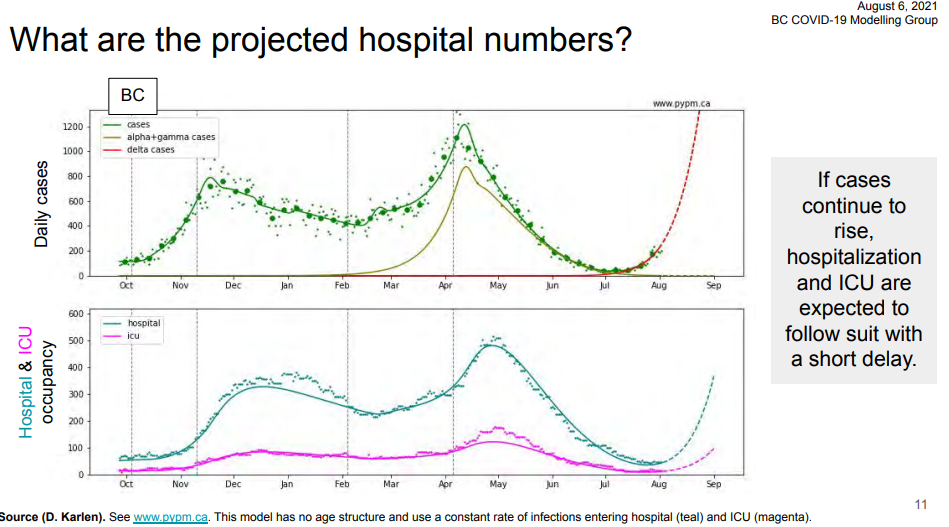New data paints a sobering picture of what COVID could soon look like in B.C.
A report from an independent modelling group of researchers from B.C. universities shows a potential spike in cases and hospitalizations over the next few weeks.
In fact, the group projects that at the current pace, B.C.’s case numbers could potentially rise above 1,000 by the end of the month.
The COVID Model Projects report says that B.C.’s data fits are consistent with the pattern seen in Europe and U.S. states, where the combination of relaxation and the emergence of the Delta variant has produced large swings in daily growth rates.
It also predicts that if cases continue to rise, hospitalizations and ICU will follow suit.
UBC zoology professor Dr. Sarah Otto is one of the report’s authors.
She said the data is a wake-up call. “If you’re sick and tired of mask mandates and sick and tired of social restrictions, like your favourite bar being closed, now is the time to go get vaccinated. That’s the best way to ensure that your community won’t be subject to these kinds of restrictions anymore. The higher the vaccination rate, the lower the case numbers are, the less your community is at risk.”
She added that we are seeing cases spike in places where vaccination levels are lowest in the province.
“I have to say that puts Vancouver Island in a pretty good position because the vaccination levels are higher there. That said, there are pockets of places and neighbourhoods where vaccination levels are lower and those are just much more susceptible (to COVID), especially much more susceptible to Delta which transmits better.”
Dr. Otto says they’re keeping a close eye on the number of hospitalizations which rose to 68 patients.
“It’s beginning to show the kind of tracking of case numbers that the modelling is expecting.”
She says that the virus can even transmit, “the data is increasingly indicating, from vaccinated people to others in the community.”
Dr. Otto says getting fully vaccinated is the best way to project yourself: “The data elsewhere is indicating that we are about eight times less likely to get infected and about two-and-a-half times less likely to land in hospital if we do get infected, and that’s with Delta, the worst of them (the variants).”






